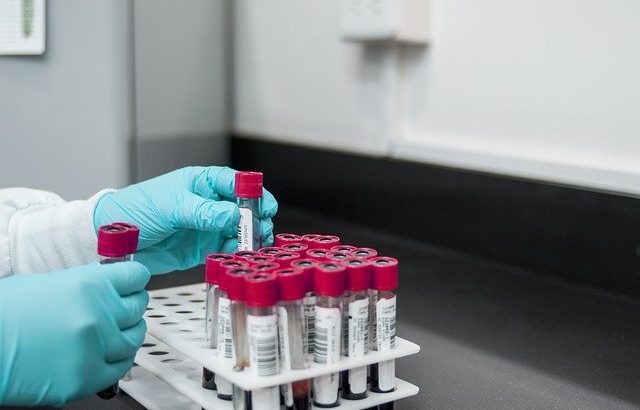Preventive Veterinary Medicine: Separating the Facts From the Fiction
Not all forms of veterinary medicine are the same. Veterinary medicine encompasses many different fields. While they involve medical treatment for animals, some of them are different than others. There’s preventative veterinary medicine, for instance. Based on the name alone, you may assume that it focuses on the prevention of diseases in animals. Preventative veterinary medicine does, in fact, cover the prevention of diseases and animals, but there’s far more to it than that.
What Is Preventative Veterinary Medicine?
Preventative veterinary medicine is a specialized field of veterinary medicine that focuses on the diagnosis and prevention of diseases in both animals and humans. It’s designed to identify and stop the spread of diseases in animals and humans. Animals, of course, can transmit diseases to humans. Dogs can transmit infections like rabies and norovirus to their human counterparts, whereas cats can transmit infections like cryptosporidiosis and campylobacteriosis to their human counterparts. These are just a few examples of animal-to-human diseases. Preventative veterinary medicine is a unique field of veterinary medicine in which veterinarians seek to stop diseases in animals and diseases that animals can transmit to humans.
The Importance of Preventative Veterinary Medicine
While all forms of veterinary medicine are important, preventative veterinary medicine is particularly important because it protects both animals and humans from diseases. Some diseases that animals can spread to humans are potentially fatal, including Rabies. Data from the World Health Organization (WHO) suggests that nearly 60,000 globally people die from rabies each year. Veterinarians who practice preventative veterinary medicine play an essential role in curbing rabies. They often spend time researching outbreaks and offering guidance on how to stop the spread of rabies in specific geographic regions.
Preventive veterinary medicine benefits animals as well. From companion animals like dogs and cats to feral animals, it protects them from diseases. Animals rely on humans for medical treatment. Fortunately, there are veterinarians who specialize in preventative veterinary medicine by lending a helping hand. They identify and prevent common diseases from which animals suffer. Without preventative veterinary medicine, diseases would rapidly spread within animal populations, and some of these diseases could be transmitted to humans.
Who Practices Preventative Veterinary Medicine?
Traditional veterinarians and board-certified specialists practice preventative veterinary medicine. Traditional veterinarians are doctors who’ve completed a Doctorate of Veterinary Medicine (DVM) program at an accredited college or learning institution. Board-certified specialists of preventative veterinary medicine, on the other hand, undergo additional education. They are still required to complete a DVM — the completion of a DVM program is necessary for all licensed veterinarians in the United States — but they also complete additional training that focuses on preventative veterinary medicine.
According to the American Veterinary Medical Association (AVMA), board-certified specialists of preventative veterinary medicine perform the following:
- Investigate outbreaks
- Manage animal diseases
- Conduct surveillance for environmental health
- Prevent zoonotic diseases
- Prevent foodborne illness
- Reduce insect bites
- Promote food protection
- Promote humane animal care and treatment

Getting Started With Preventative Veterinary Medicine
To start a career in preventative veterinary medicine, you’ll need to complete a DVM program. All licensed veterinarians must complete a DVM program in order to legally practice in the United States. DVM programs are four-year educational programs that cover topics and curriculum related to veterinary medicine. They don’t focus on preventative veterinary medicine. Rather, DVM programs cover all forms of veterinary medicine curriculum. Nonetheless, you’ll have to complete a DVM program if you’re hoping to start a career in preventative veterinary medicine.
DVM programs have prerequisites for enrollment as well. In other words, you can’t enroll in a DVM program unless you meet the college’s requirements. Most colleges and other educational institutes require students to complete a four-year bachelor’s degree before enrolling in their DVM program. Other colleges and educational institutions require a minimum number of hours performing volunteer work with animals. If you want to practice preventative veterinary medicine, you’ll need to complete these prerequisites so that you can enroll in a DVM program.
If you want to become a board-certified specialist of preventative veterinary medicine, you’ll have to complete additional training. The AVMA recognizes 22 unique veterinary specialties, one of which being preventative veterinary medicine. To earn the title of a board-certified specialist, veterinarians are required to complete additional training for their desired specialty.
Board certification for preventive veterinary medicine is managed by the American College of Veterinary Preventive Medicine (ACVPM). The ACVPM is the only organization that’s recognized by the AVMA for board certification in this particular field. It handles all the training, as well as continued education, for board-certified specialists of preventive veterinary medicine.
In Conclusion
After reading this, you should have a better understanding of preventative veterinary medicine. It’s a field of veterinary medicine that focuses on the prevention of diseases in animals and diseases that animals can transmit to humans. Both traditional veterinarians and board-certified specialists practice preventative veterinary medicine.

